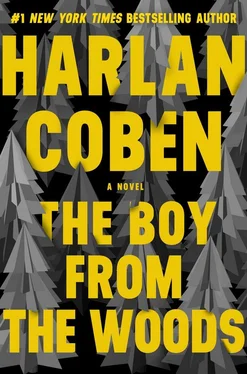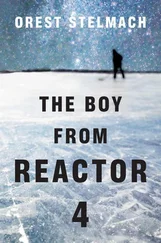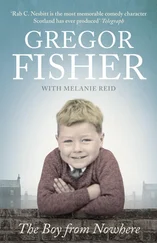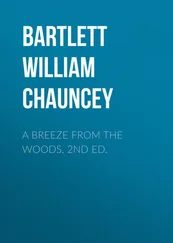There was a ping.
It took them all a second to react to it, but then Dash, his eyes doing the thousand-yard stare, reached into his pocket and pulled out his phone. His hand shook.
“What is it?” Delia asked.
Dash read it, got to his feet, and handed his wife the phone. Wilde moved close to read over her shoulder.
Send the tape we want in the next thirty minutes or we will send the coordinates for your son’s entire arm. If you contact the police, he will die in terrible pain.
“What tape?” Delia shouted. “There is no tape. We don’t have...”
Dash started hurrying up the drive toward the house.
“Dash?” she called to him.
He didn’t reply.
“Dash?”
She ran behind him.
“Oh God, what did you do?”
Dash still wouldn’t speak, but tears streamed down his face.
“Dash?”
“I’m sorry,” he said.
“What did you do, Dash?”
“I didn’t think he was really in danger. I didn’t...”
He broke into a full sprint. Delia called out to him, but he didn’t respond. She continued to give chase. Wilde, his shirt already coated with sweat, followed them as they entered through the side door and up the turret into the library. Dash hurried up the stairs. He moved behind his desk and started typing on the laptop.
“Talk to me,” Delia said.
Dash glanced up. He spotted Wilde and said, “Get out of here.”
“No.”
“I said—”
“I heard you,” Wilde said. “But that’s not going to happen.”
“You’re fired.”
“Cool.”
Wilde didn’t move.
“You have no right to be here.”
“Then throw me out,” Wilde said.
“Dash,” Delia said, “tell me. Please?”
“Not in front of him.”
“Yeah, Dash,” Wilde said, “in front of me. Stop wasting time.”
Delia moved closer to her husband and put her hands on his face. “Baby, look at me,” she said, turning his face to hers. The gesture was surprisingly tender. “Tell me, Dash. Please? Tell me now.”
Dash swallowed, the tears back now. “He did it. He killed him.”
“What are you talking—?”
“Rusty killed Christopher.”
Her hands slid down off his face as she shook her head. “I don’t understand.”
“That night,” Dash said. “We’d all been drinking at the Lockwood. Rusty and Christopher, you know how they were. The two of them almost came to blows. I broke it up. Christopher stormed out. Then I got a call at, I don’t know, one in the morning. It was Rusty in a panic. He begged me to come over. I could tell from his voice that it was bad. So I went and, well, you know me.”
Delia’s voice was far away. “You taped it.”
“It’s what I do. You know that.”
“Which camera?”
“Why do you—?”
“Which camera, Dash?”
“The hidden pocket one.”
Delia closed her eyes.
Wilde took out his phone and checked the app. It was all coming together now.
“You were in Philadelphia that night,” Dash said to her, “researching some project for that congressional subcommittee. When I got there...”
He stopped.
“What?” Delia said.
Dash seemed unable to speak now. He flipped the computer screen around so it was facing Delia and Wilde. He pressed the play button and collapsed back.
For a few seconds, the screen remained a grainy black. Then a door flew open, and a young Rusty Eggers was there. Judging by the height, the camera must have been placed somewhere near Dash’s breast pocket. The view was grainy and somewhat distorted, like a fish-eye, like watching the whole thing through a peephole.
Several things struck Wilde all at once. First, the obvious: Rusty looked so damn young. He was probably around twenty years old here, and for some reason, even though he hadn’t aged poorly or anything, the effect of seeing Rusty Eggers at this age was strange, like some kind of “before it all went wrong” picture.
The second thing was, Rusty seemed remarkably calm and controlled. For a moment, his gaze turned directly to the lens, almost as though he knew it was there.
Third: His smile was broad. Too broad.
“Thanks for coming,” Rusty said.
“You said it was urgent?”
The voice of young Dash.
“Yeah, come in.”
Rusty moved to the side, out of sight. The camera took two steps forward as Dash entered. There was the sound of a bolt slide. Wilde figured that Rusty had just locked the door behind them.
“What’s going on?” Dash asked.
Rusty stepped back into view. “I really appreciate you coming.”
“What the...?” Dash suddenly sounded terrified. “Is that blood on your hand?”
With the broad smile still plastered to his face, Rusty reached toward the lens with an open hand covered with blood.
“Rusty?”
The hand moved north of the camera lens, grabbed what must have been Dash’s shoulder, and jerked him forward.
“What the hell, Rusty! Let go of me.”
He didn’t. Rusty dragged Dash forward. The picture on the screen lurched. The breast-pocket viewpoint combined with the fish-eye quality of the lens made it difficult to keep track of what was happening when there was movement. Lots of things were a blur for the next few seconds. Wilde spotted a bookshelf maybe. A rug. Some wall hangings.
The movement slowed down a bit. A tile floor. A stove, fridge.
The kitchen.
Wilde risked a glance at Delia. She stared at the screen transfixed.
Then on the screen, Wilde heard Dash let out a sharp gasp.
Rusty moved close to him, blocking the camera for a moment. He whispered, probably in Dash’s ear, “Don’t scream.”
Then Rusty let Dash go and took a step back. The camera panned down to the tile floor, swung a little to the right, and stopped cold.
There, lying on his back in a pool of blood, eyes open and unblinking, was Christopher Anson. For a few seconds, the camera didn’t move, didn’t jerk, didn’t shake. It was almost as though Dash couldn’t even breathe.
Then Dash said in a hushed, horrified tone, “Oh my God.”
“It was self-defense, Dash.”
“Oh my God.”
“Christopher broke in,” Rusty said. His tone was low and serene in a way that chilled the room more than the scariest of screams. “I had no choice, Dash. Dash? Do you hear me?”
The camera veered away from the dead body and back to Rusty, the fish-eye lens making his face look huge. There was still a hint of a smile, but Rusty’s distorted eyes were black and cold.
“Christopher broke in,” Rusty said again, as though he were explaining the situation to a small child. There was no mania in his tone. No emotion, no panic, no crazy. “I think he was high on drugs, Dash. That’s my guess. He probably bought them after he left the bar. You saw how angry Christopher was, right?”
Dash didn’t or maybe couldn’t answer. Rusty moved closer. When Rusty spoke again, his voice — still calm, still in total control — had just a bit more bite:
“You saw that, right?”
“Uh, yeah, I guess.”
“You guess?”
“I mean, yeah, I did, of course.” Then: “We need to call the police, Rusty.”
“Oh no, that’s not going to happen.”
“What?”
“I killed him.”
“You... you said it was—”
“Self-defense, yes. But who’s going to believe me, Dash — me against the Anson family and their connections?” Rusty’s face grew larger as he moved closer to Dash’s chest. His voice was again a whisper. “No one.”
“But... I mean, we have to call the police.”
“No, we don’t.”
“I don’t understand.”
Rusty stepped back. “Dash, listen to me.”
The camera moved a little to the left. Casually, almost too nonchalantly, Rusty started to raise his right hand. Dash cried out. He startled back, so that everything was a blur. A few seconds later, the lens regained focus.
Читать дальше












